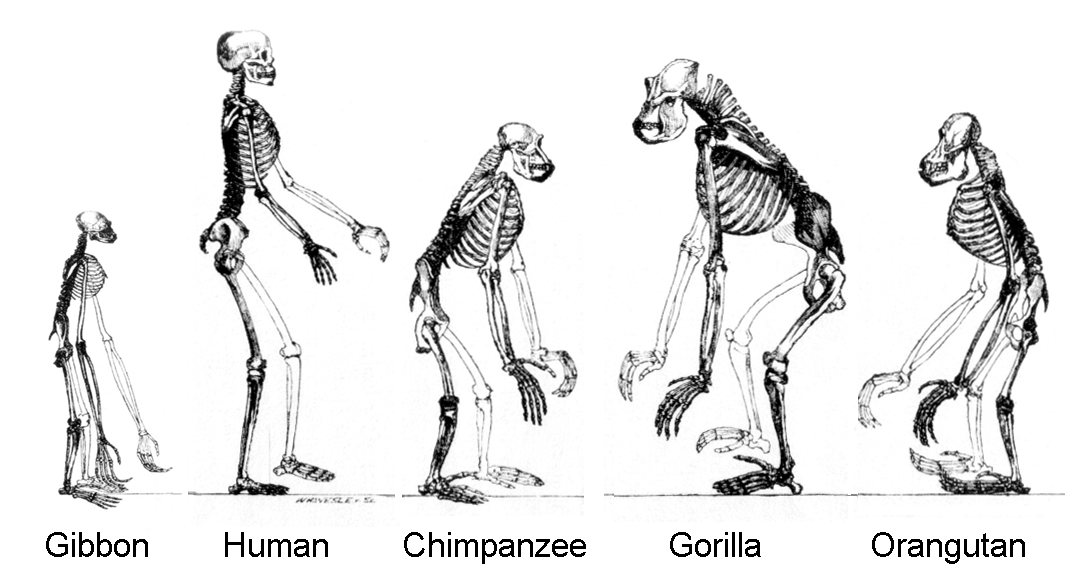|
Helen Longino
Helen Elizabeth Longino (born July 13, 1944) is an American philosopher of science who has argued for the significance of values and social interactions to scientific inquiry. She has written about the role of women in science and is a central figure in feminist epistemology and social epistemology. She is the Clarence Irving Lewis Professor of Philosophy at Stanford University. In 2016, she was elected to the American Academy of Arts and Sciences. Education and career Longino received her B.A. in English literature from Barnard College in 1966 and her M.A. in philosophy from the University of Sussex, England, in 1967. She earned her PhD from Johns Hopkins University in Baltimore, Maryland in 1973, under the supervision of Peter Achinstein. Her dissertation dealt with ''Inference and Scientific Discovery''. Longino taught at the University of California, San Diego (1973–1975), Mills College (1975–1990), Rice University (1990–1995), and the University of Minnesota (1995 ... [...More Info...] [...Related Items...] OR: [Wikipedia] [Google] [Baidu] |
Feminist Theory
Feminist theory is the extension of feminism into theoretical, fictional, or philosophical discourse. It aims to understand the nature of gender inequality. It examines women's and men's social roles, experiences, interests, chores, and feminist politics in a variety of fields, such as anthropology and sociology, communication, media studies, psychoanalysis,Chodorow, Nancy J., Feminism and Psychoanalytic Theory' (Yale University Press: 1989, 1991) political theory, home economics, literature, education, and philosophy. Feminist theory often focuses on analyzing gender inequality. Themes often explored in feminist theory include discrimination, objectification (especially sexual objectification), oppression, patriarchy,Gilligan, Carol, 'In a Different Voice: Women's Conceptions of Self and Morality' in ''Harvard Educational Review'' (1977)Lerman, Hannah, ''Feminist Ethics in Psychotherapy'' (Springer Publishing Company, 1990) stereotyping, art history and contemporary art ... [...More Info...] [...Related Items...] OR: [Wikipedia] [Google] [Baidu] |
University Of California, San Diego
The University of California, San Diego (UC San Diego or colloquially, UCSD) is a public land-grant research university in San Diego, California. Established in 1960 near the pre-existing Scripps Institution of Oceanography, UC San Diego is the southernmost of the ten campuses of the University of California, and offers over 200 undergraduate and graduate degree programs, enrolling 33,096 undergraduate and 9,872 graduate students. The university occupies near the coast of the Pacific Ocean, with the main campus resting on approximately . UC San Diego is ranked among the best universities in the world by major college and university rankings. UC San Diego consists of twelve undergraduate, graduate and professional schools as well as seven undergraduate residential colleges. It received over 140,000 applications for undergraduate admissions in Fall 2021, making it the second most applied-to university in the United States. UC San Diego Health, the region's only academic health ... [...More Info...] [...Related Items...] OR: [Wikipedia] [Google] [Baidu] |
Human Evolution
Human evolution is the evolutionary process within the history of primates that led to the emergence of '' Homo sapiens'' as a distinct species of the hominid family, which includes the great apes. This process involved the gradual development of traits such as human bipedalism and language, as well as interbreeding with other hominins, which indicate that human evolution was not linear but a web.Human Hybrids (PDF). Michael F. Hammer. ''Scientific American'', May 2013. The study of human evolution involves scientific disciplines, including [...More Info...] [...Related Items...] OR: [Wikipedia] [Google] [Baidu] |
Feminism
Feminism is a range of socio-political movements and ideologies that aim to define and establish the political, economic, personal, and social equality of the sexes. Feminism incorporates the position that society prioritizes the male point of view and that women are treated unjustly in these societies. Efforts to change this include fighting against gender stereotypes and improving educational, professional, and interpersonal opportunities and outcomes for women. Feminist movements have campaigned and continue to campaign for women's rights, including the right to vote, run for public office, work, earn equal pay, own property, receive education, enter contracts, have equal rights within marriage, and maternity leave. Feminists have also worked to ensure access to contraception, legal abortions, and social integration and to protect women and girls from rape, sexual harassment, and domestic violence. Changes in female dress standards and acceptable physical act ... [...More Info...] [...Related Items...] OR: [Wikipedia] [Google] [Baidu] |
Sociology Of Science
The sociology of scientific knowledge (SSK) is the study of science as a social activity, especially dealing with "the social conditions and effects of science, and with the social structures and processes of scientific activity." The sociology of scientific ignorance (SSI) is complementary to the sociology of scientific knowledge. For comparison, the sociology of knowledge studies the impact of human knowledge and the prevailing ideas on societies and relations between knowledge and the social context within which it arises. Sociologists of scientific knowledge study the development of a scientific field and attempt to identify points of contingency or interpretative flexibility where ambiguities are present. Such variations may be linked to a variety of political, historical, cultural or economic factors. Crucially, the field does not set out to promote relativism or to attack the scientific project; the objective of the researcher is to explain why one interpretation rat ... [...More Info...] [...Related Items...] OR: [Wikipedia] [Google] [Baidu] |
Underdetermination
In the philosophy of science, underdetermination or the underdetermination of theory by data (sometimes abbreviated UTD) is the idea that evidence available to us at a given time may be insufficient to determine what beliefs we should hold in response to it. The ''underdetermination thesis'' says that all evidence necessarily underdetermines any scientific theory. Underdetermination exists when available evidence is insufficient to identify which belief one should hold about that evidence. For example, if all that was known was that exactly $10 was spent on apples and oranges, and that apples cost $1 and oranges $2, then one would know enough to eliminate some possibilities (e.g., 6 oranges could not have been purchased), but one would not have enough evidence to know which specific combination of apples and oranges was purchased. In this example, one would say that belief in what combination was purchased is underdetermined by the available evidence. In contrast, overdetermina ... [...More Info...] [...Related Items...] OR: [Wikipedia] [Google] [Baidu] |
Theory
A theory is a rational type of abstract thinking about a phenomenon, or the results of such thinking. The process of contemplative and rational thinking is often associated with such processes as observational study or research. Theories may be scientific, belong to a non-scientific discipline, or no discipline at all. Depending on the context, a theory's assertions might, for example, include generalized explanations of how nature works. The word has its roots in ancient Greek, but in modern use it has taken on several related meanings. In modern science, the term "theory" refers to scientific theories, a well-confirmed type of explanation of nature, made in a way consistent with the scientific method, and fulfilling the criteria required by modern science. Such theories are described in such a way that scientific tests should be able to provide empirical support for it, or empirical contradiction (" falsify") of it. Scientific theories are the most reliable, rigorous, and ... [...More Info...] [...Related Items...] OR: [Wikipedia] [Google] [Baidu] |
Logic
Logic is the study of correct reasoning. It includes both formal and informal logic. Formal logic is the science of deductively valid inferences or of logical truths. It is a formal science investigating how conclusions follow from premises in a topic-neutral way. When used as a countable noun, the term "a logic" refers to a logical formal system that articulates a proof system. Formal logic contrasts with informal logic, which is associated with informal fallacies, critical thinking, and argumentation theory. While there is no general agreement on how formal and informal logic are to be distinguished, one prominent approach associates their difference with whether the studied arguments are expressed in formal or informal languages. Logic plays a central role in multiple fields, such as philosophy, mathematics, computer science, and linguistics. Logic studies arguments, which consist of a set of premises together with a conclusion. Premises and conclusions are usua ... [...More Info...] [...Related Items...] OR: [Wikipedia] [Google] [Baidu] |
Hypothesis
A hypothesis (plural hypotheses) is a proposed explanation for a phenomenon. For a hypothesis to be a scientific hypothesis, the scientific method requires that one can test it. Scientists generally base scientific hypotheses on previous observations that cannot satisfactorily be explained with the available scientific theories. Even though the words "hypothesis" and "theory" are often used interchangeably, a scientific hypothesis is not the same as a scientific theory. A working hypothesis is a provisionally accepted hypothesis proposed for further research in a process beginning with an educated guess or thought. A different meaning of the term ''hypothesis'' is used in formal logic, to denote the antecedent of a proposition; thus in the proposition "If ''P'', then ''Q''", ''P'' denotes the hypothesis (or antecedent); ''Q'' can be called a consequent. ''P'' is the assumption in a (possibly counterfactual) ''What If'' question. The adjective ''hypothetical'', meaning ... [...More Info...] [...Related Items...] OR: [Wikipedia] [Google] [Baidu] |
Data
In the pursuit of knowledge, data (; ) is a collection of discrete Value_(semiotics), values that convey information, describing quantity, qualitative property, quality, fact, statistics, other basic units of meaning, or simply sequences of symbols that may be further interpretation (logic), interpreted. A datum is an individual value in a collection of data. Data is usually organized into structures such as table (information), tables that provide additional context and meaning, and which may themselves be used as data in larger structures. Data may be used as variable (research), variables in a computation, computational process. Data may represent abstract ideas or concrete measurements. Data is commonly used in scientific research, economics, and in virtually every other form of human organizational activity. Examples of data sets include price indices (such as consumer price index), unemployment rates, literacy rates, and census data. In this context, data represents the ... [...More Info...] [...Related Items...] OR: [Wikipedia] [Google] [Baidu] |
Contextual Empiricism
Contextual empiricism is a theory about validating scientific knowledge. It is the view that scientific knowledge is shaped by contextual values as well as constitutive ones.Janet Kourany, ''Scientific Knowledge'' See also *Scientific theory *Helen Longino Helen Elizabeth Longino (born July 13, 1944) is an American philosopher of science who has argued for the significance of values and social interactions to scientific inquiry. She has written about the role of women in science and is a centra ... References Empiricism Metatheory of science {{science-philo-stub ... [...More Info...] [...Related Items...] OR: [Wikipedia] [Google] [Baidu] |
Objectivity (philosophy)
In philosophy, objectivity is the concept of truth independent from individual subjectivity (bias caused by one's perception, emotions, or imagination). A proposition is considered to have objective truth when its truth conditions are met without bias caused by the mind of a sentient being. Scientific objectivity refers to the ability to judge without partiality or external influence. Objectivity in the moral framework calls for moral codes to be assessed based on the well-being of the people in the society that follow it. Moral objectivity also calls for moral codes to be compared to one another through a set of universal facts and not through subjectivity. Objectivity of knowledge Plato considered geometry to be a condition of idealism concerned with universal truth. In '' Republic'', Socrates opposes the sophist Thrasymachus's relativistic account of justice, and argues that justice is mathematical in its conceptual structure, and that ethics was therefore a precise and ob ... [...More Info...] [...Related Items...] OR: [Wikipedia] [Google] [Baidu] |






